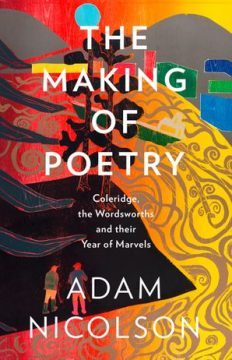Nicholas Roe at Literary Review:
 Like most of their generation, Coleridge and Wordsworth had embraced the French Revolution and its ideals of liberty and equality, then lived through the shattering reversals of massacre and war that ensued. By the mid-1790s, many of the poets’ acquaintances were racked by mental and emotional stress. Some of them fled the country; others opted for internal exile, hidden, they hoped, from the spies and informers patrolling the cities. Nicolson argues convincingly that the fragmentary, fierce and strange poetry Wordsworth produced before Lyrical Ballads was composed on the cusp of madness. It was only by going to ground in England’s West Country that Wordsworth was able to cope. We get a rare glimpse of him at that time in Dorothy Wordsworth’s remark that her brother is ‘dextrous with a spade’. Like Heaney, Nicolson’s young Romantics are energised by ‘touching territory’ – digging in to renew themselves and their writing. The idea, Nicolson suggests, ‘that the contented life was the earth-connected life, even that goodness was embeddedness … had its roots in the 1790s’. As furze bloomed brightly on Longstone Hill, Coleridge and Wordsworth began to write poems that would challenge ‘pre-established codes’, change how people thought and so remake the world.
Like most of their generation, Coleridge and Wordsworth had embraced the French Revolution and its ideals of liberty and equality, then lived through the shattering reversals of massacre and war that ensued. By the mid-1790s, many of the poets’ acquaintances were racked by mental and emotional stress. Some of them fled the country; others opted for internal exile, hidden, they hoped, from the spies and informers patrolling the cities. Nicolson argues convincingly that the fragmentary, fierce and strange poetry Wordsworth produced before Lyrical Ballads was composed on the cusp of madness. It was only by going to ground in England’s West Country that Wordsworth was able to cope. We get a rare glimpse of him at that time in Dorothy Wordsworth’s remark that her brother is ‘dextrous with a spade’. Like Heaney, Nicolson’s young Romantics are energised by ‘touching territory’ – digging in to renew themselves and their writing. The idea, Nicolson suggests, ‘that the contented life was the earth-connected life, even that goodness was embeddedness … had its roots in the 1790s’. As furze bloomed brightly on Longstone Hill, Coleridge and Wordsworth began to write poems that would challenge ‘pre-established codes’, change how people thought and so remake the world.
more here.
